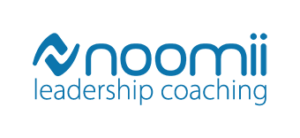Coaching for CEOs Guide: Elevate Leadership in 2025
In 2025, the pressure on CEOs is intensifying as business environments shift at unprecedented speed. Leaders must be ready to respond to challenges that are more complex and dynamic than ever before.
This guide reveals how coaching for ceos is the driving force behind transformative leadership and organizational resilience. It offers a clear roadmap for executives seeking to elevate their impact, ensure stability, and deliver sustainable results.
Inside, you will explore the newest trends in CEO coaching, discover proven benefits, learn step-by-step strategies, and find out which leadership qualities matter most.
The Evolving Role of CEOs in 2025
The landscape for CEOs is shifting rapidly. Recent data shows the median S&P 500 CEO tenure has dropped from six years in 2013 to just 4.8 years in 2022. Today, 39% of S&P 500 CEOs serve between one and five years. This signals a clear trend: the role is more demanding and less predictable than ever before.
Modern CEOs face challenges on multiple fronts. Navigating digital disruption, economic volatility, and evolving stakeholder expectations requires new levels of agility. Leaders must adapt quickly to shifting market conditions and guide their organizations through uncertainty.
Openness to feedback is now a differentiator. This willingness to grow not only extends careers but also drives innovation and resilience within their organizations.
Case studies reveal that companies led by CEOs receptive to feedback consistently outperform peers in resilience and adaptability. The evidence is clear: coaching for ceos is no longer optional. To thrive in 2025, leaders need new mindsets, skillsets, and a commitment to continuous development.

Why Coaching for CEOs Drives Organizational Success
For modern organizations, coaching for CEOs is more than a perk—it is a strategic foundation for sustainable growth. The trusted, confidential environment provided by executive coaching helps CEOs process complex decisions, test ideas, and receive unbiased feedback.
This safe space enables leaders to clarify their priorities and sharpen their focus on what truly matters. Through coaching for CEOs, executives develop humility and resolve, which are essential for navigating uncertainty and driving positive change.
Key Organizational Benefits of CEO Coaching:
| Benefit | Description |
|---|---|
| Stability | Coached CEOs foster consistent leadership during transitions. |
| Change Leadership | Leaders drive transformation and adaptability. |
| Performance | Coaching aligns actions to strategy for measurable results. |
| Succession Planning | Future leaders are identified and developed proactively. |
Coaching for CEOs also strengthens succession pipelines and cultivates cultures of accountability. By integrating accountability frameworks into coaching, as seen with Accountability-Driven CEO Coaching, organizations see measurable improvements in execution and leadership team cohesion.
Evidence shows that organizations investing in CEO coaching experience higher engagement and retention rates. According to the CEO Coaching Impact Study, companies with coached CEOs outperform peers in market adaptability and profit growth.
Ultimately, coaching for CEOs is a proven lever for enhancing leadership effectiveness and organizational outcomes. It is an investment that yields measurable business value and prepares companies for the challenges ahead.

Step-by-Step Guide to Effective CEO Coaching
Navigating the complexities of modern leadership requires a clear, structured approach. This step-by-step guide breaks down how coaching for ceos can be integrated with maximum impact, supporting both personal growth and measurable business results.

Step 1: Assess Leadership Needs and Goals
Begin with a thorough evaluation of both personal and organizational leadership gaps. Use 360-degree assessments and stakeholder feedback to gain a comprehensive view. Align coaching for ceos with your company’s strategic priorities and KPIs to ensure all coaching efforts are relevant and measurable.
- Identify key leadership challenges
- Define what success looks like for your role
- Set initial coaching objectives tied to business outcomes
Step 2: Select the Right Coach
Choosing the right partner is pivotal. Prioritize candidates with proven executive experience and industry knowledge. Chemistry and confidentiality are essential for a productive relationship. Explore digital platforms like the Noomii corporate coaching platform to find coaches who specialize in coaching for ceos and understand the nuances of your sector.
- Review coach credentials and references
- Assess coaching style and compatibility
- Confirm a results-oriented, confidential approach
Step 3: Design a Customized Coaching Plan
Work collaboratively to set clear, measurable goals and define milestones. Integrate coaching sessions into regular leadership routines. Schedule progress reviews to track development and adjust focus areas as needed.
- Establish timelines for each goal
- Incorporate real business scenarios into the plan
- Set up checkpoints for feedback and recalibration
Step 4: Implement and Iterate
Apply coaching for ceos insights in everyday leadership situations, from high-stakes meetings to strategic decisions. Encourage open feedback from the board and executive team. Be ready to adapt the coaching focus as organizational needs shift or new challenges emerge.
- Practice new behaviors in real time
- Seek input to refine leadership approach
- Adjust coaching plan for evolving priorities
Step 5: Measure Impact and ROI
Track progress using KPIs like decision-making speed, team engagement, and retention. Collect success stories and feedback to demonstrate the value of coaching. Use these insights to reinforce the commitment to ongoing leadership development.
- Monitor changes in leadership effectiveness
- Link coaching results to business performance
- Share outcomes with stakeholders
Core Leadership Qualities to Cultivate Through Coaching
Today’s CEOs face a business environment that demands more than technical expertise. To excel, leaders must cultivate a set of core qualities that underpin effective leadership and organizational health. Coaching for ceos is essential to accelerate this development.
Strategic Vision: CEOs need to see the big picture, anticipate market changes, and guide their organization with foresight. Strategic thinking enables leaders to spot opportunities and respond proactively.
Communication: Clear, transparent communication ensures that goals, values, and vision resonate throughout the company. Strong communicators align teams and foster a culture of trust.
Emotional Intelligence: Mastery of self-regulation and composure under pressure is non-negotiable. Research on emotional intelligence in leadership shows it is a critical factor in leading high-performing teams and building strong relationships.
Accountability: Modeling ownership and driving results starts at the top. Partnering with an accountability-driven coach, such as those at Accountability Now, empowers CEOs to embed accountability into the executive culture.
Succession Mindset: Developing and mentoring future leaders ensures organizational continuity. CEOs who invest in succession planning build resilient teams prepared for evolving challenges.
Leadership development programs consistently improve executive performance and foster healthier organizations. CEOs who embody these traits inspire stability, trust, and sustained success. Through coaching for ceos, these qualities are not only cultivated but continuously reinforced for long-term impact.

Choosing the Right CEO Coaching Solution
Selecting the right coaching for ceos is a pivotal decision that shapes both executive performance and organizational growth. With so many options available, it is essential to evaluate each solution through a strategic lens.
Begin by considering the delivery model that best fits your needs. Options include one-on-one sessions, group or team engagements, and hybrid approaches that blend both. Evaluate flexibility by comparing digital, in-person, or blended formats to suit your executive schedule.
Next, review the provider’s track record. Look for evidence of proven results within organizations similar to yours. Prioritize coaching programs that directly connect progress to specific business metrics and KPIs for clear ROI.
Customization is also key. The most effective coaching for ceos is tailored to your unique culture, challenges, and leadership goals. Platforms like Executive team coaching solutions can offer scalable, results-driven programs designed for executive teams.
Ultimately, the right coaching partner becomes a strategic asset, accelerating decision-making and driving measurable impact across the organization.
Trends and Future Outlook for CEO Coaching in 2025
The landscape of coaching for ceos is shifting rapidly as technology and business demands evolve. In 2025, data-driven and AI-powered tools are transforming the effectiveness of executive coaching, providing real-time, actionable insights tailored to individual leaders. For a deeper dive into how artificial intelligence is shaping the field, see AI in Executive Coaching.
A major trend is the prioritization of diversity, equity, and inclusion in CEO development programs. Organizations are embedding these principles into their coaching frameworks to build more resilient and adaptive leadership teams.
Boards and stakeholders now expect ceos to engage in continuous learning and development. Real-time, situational coaching is increasingly integrated into daily workflows, helping leaders respond swiftly to market shifts and organizational changes.
Companies that adopt ongoing coaching models report sustained improvements in leadership performance and team engagement. Staying ahead of these trends ensures ceos remain agile, accountable, and effective. For those seeking to create high-accountability executive environments, Accountability Now offers actionable resources and proven strategies.




Leave a Reply
Want to join the discussion?Feel free to contribute!